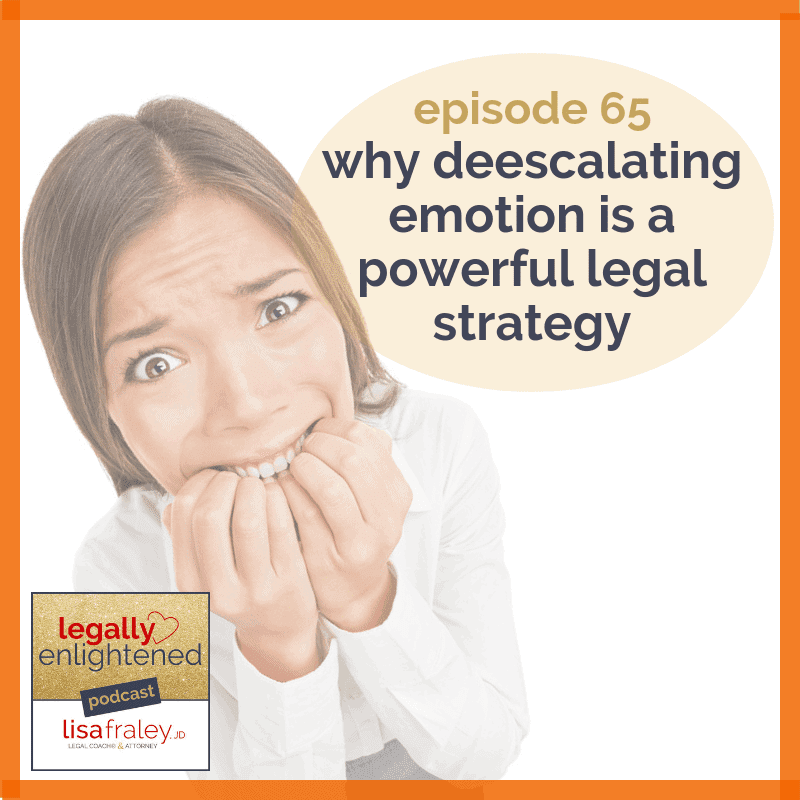Why deescalating emotion is a powerful legal strategy
You’ve probably experienced that emotions can run high when a client wants a refund or tries to back out of a program. If you say no, they can often upset… REALLY upset!
You can feel like your hands are tied. You feel you have to give a refund to get the client to back down. Sometimes that’s true, but other times, you have options.
What can you do if a client is upset when you don’t give a refund and threatens to sue you – or to make nasty comments about you on social media?
How can you try to diffuse the tension to avoid a lawsuit or them ruining your reputation?
This might come as a surprise, but did you know that deescalating EMOTION can be a powerful legal strategy?
Yep, that’s right – it’s not just a relationship-preserving strategy, but an actual LEGAL strategy. How so?
Well, if you know me by now, you know that I’m not your typical attorney. If you’ve heard me speak on stage, then you’ve heard me say that most people think about the law and love as being two entirely different things that you feel like you need to choose between. Law feels cold, corporate, and scary. And love, of course, feels inviting, and warm, and soft.
I draw on my training as a health coach and life coach to bring love and care into the law, certainly to make the law less scary – but also as a philosophy.
Bringing more love and compassion into the law is not the normal way to think about resolving a client conflict, that’s for sure – but it actually can result in BETTER outcomes for you AND your clients.
How exactly can you try to reduce the emotional reaction of a client when you won’t give a refund?
Don’t have iTunes? Listen on my website here.
In less than 15 minutes in this episode I share:
- Why it’s important to diffuse the client’s heated emotions as a LEGAL strategy – not just a relationship-building strategy
- The power of compassion and apology when working with a volatile client (especially when you don’t have a signed contract)
- Why you should make sure the client feels heard and validated before you offer other solutions
- Why dropping into your heart and putting your pride aside can be worth your temporary discomfort
- The value of using a Client Agreement with 1-on-1 clients to spell out your client policies in writing
The bottom line is that…
By deescalating heated emotions, you can often diffuse the threat of legal action.
And that, my friend, is the goal.
Have a listen (it’s a quick one!) right here.
Here’s to preserving your relationship with your client – AND your reputation!




